GENE EXPRESSION NOISE IN STRESS RESPONSE
AS A SURVIVAL STRATEGY
IN FLUCTUATING ENVIRONMENTS
Javier Garcia-Bernardo
Thesis defense
March 27, 2015
THANKS!













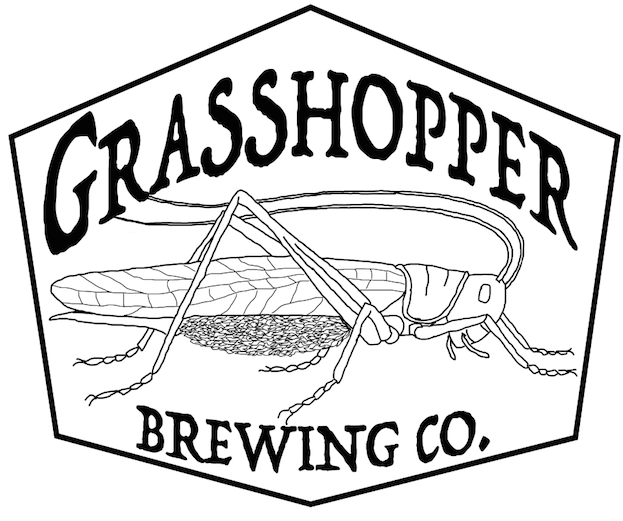


Structure
Introduction
A. Variability in gene expression increases resistance to stress
B. Variability in gene expression coordinates stress response
C. Variability in gene expression versus bimodality in gene expression
INTRODUCTION
MICROORGANISMS





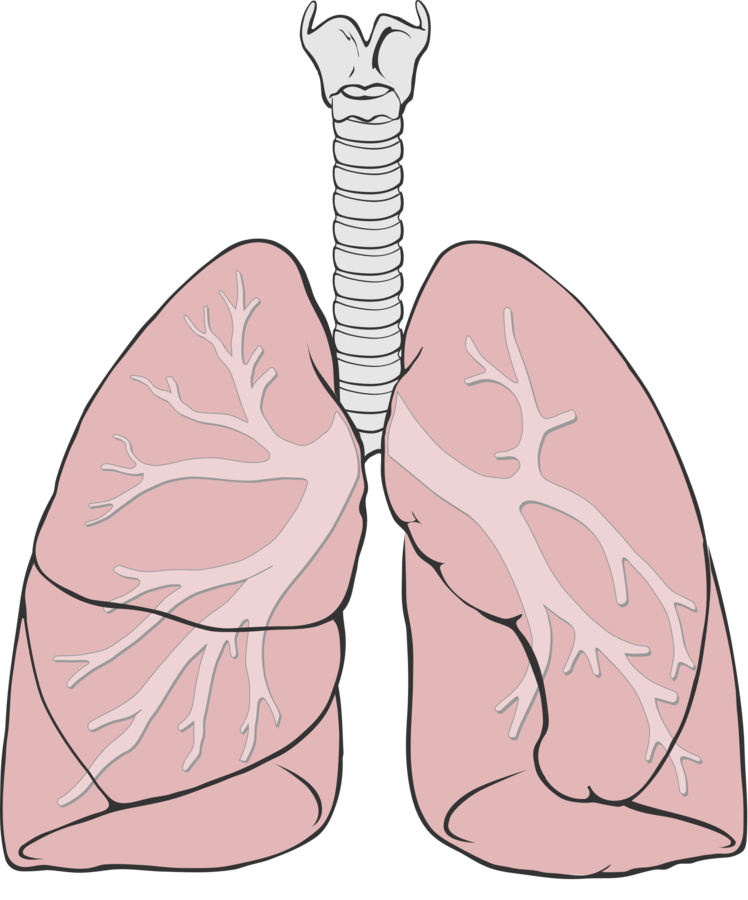
THE ENVIRONMENT IS UNCERTAIN -- despair may strike
STRESS RESISTANCE MECHANISMS
Others:
- Growth arrest
- Sporulation
- Competence
- DNA repair

COST

BENEFIT
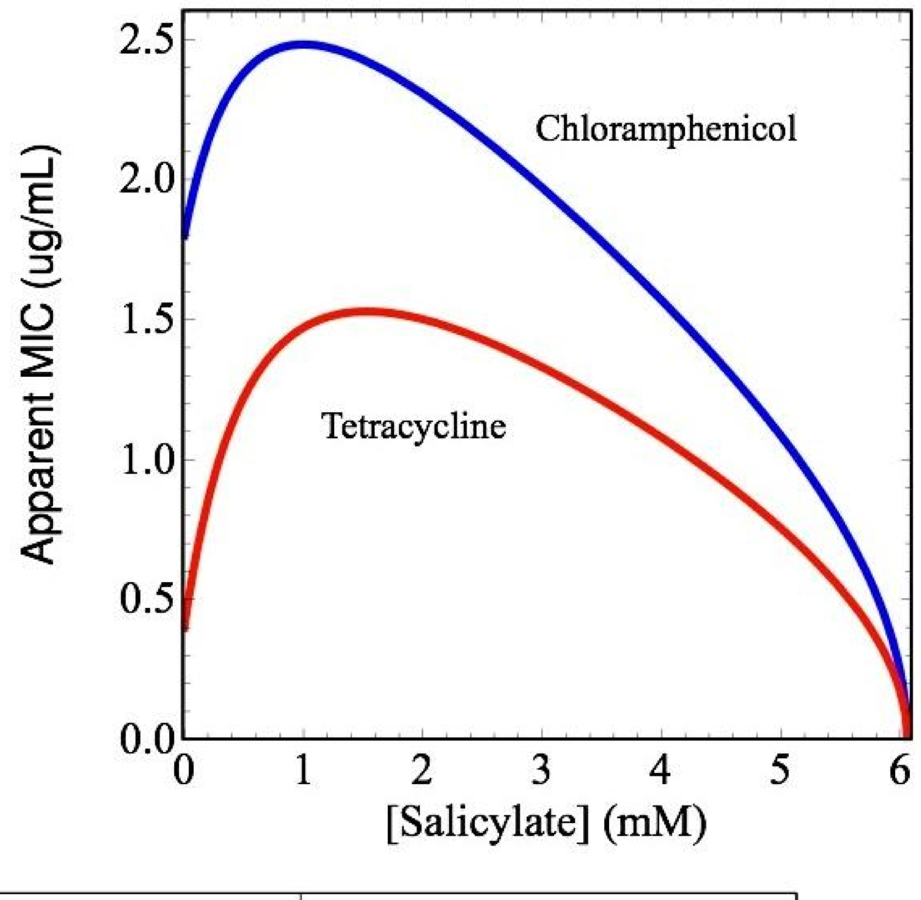
COST-BENEFIT OF STRESS RESISTANCE
Wood et al., BMC Systems Biology (2012)
STRATEGIES TO BALANCE HIGH GROWTH AND SURVIVAL RATES
Diversify
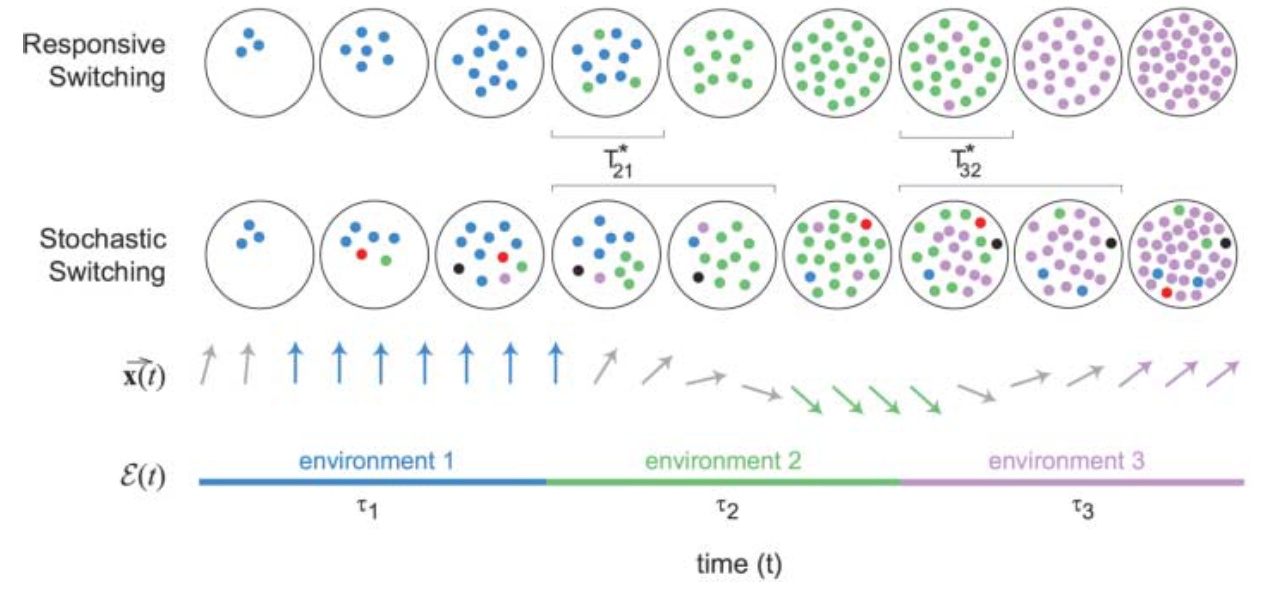
Sensing
Kussell and Leibler, Science (2005)
Cells cannot rely solely on sensing if the stressor appears abruptly or rarely.
(A) VARIABILITY IN GENE EXPRESSION INCREASES RESISTANCE TO STRESS
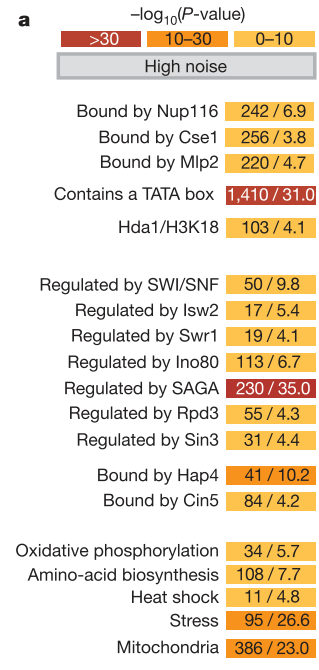
Newman et al., Nature (2006)
VARIABILITY IN GENE EXPRESSION
CORRELATES WITH STRESS RESISTANCE
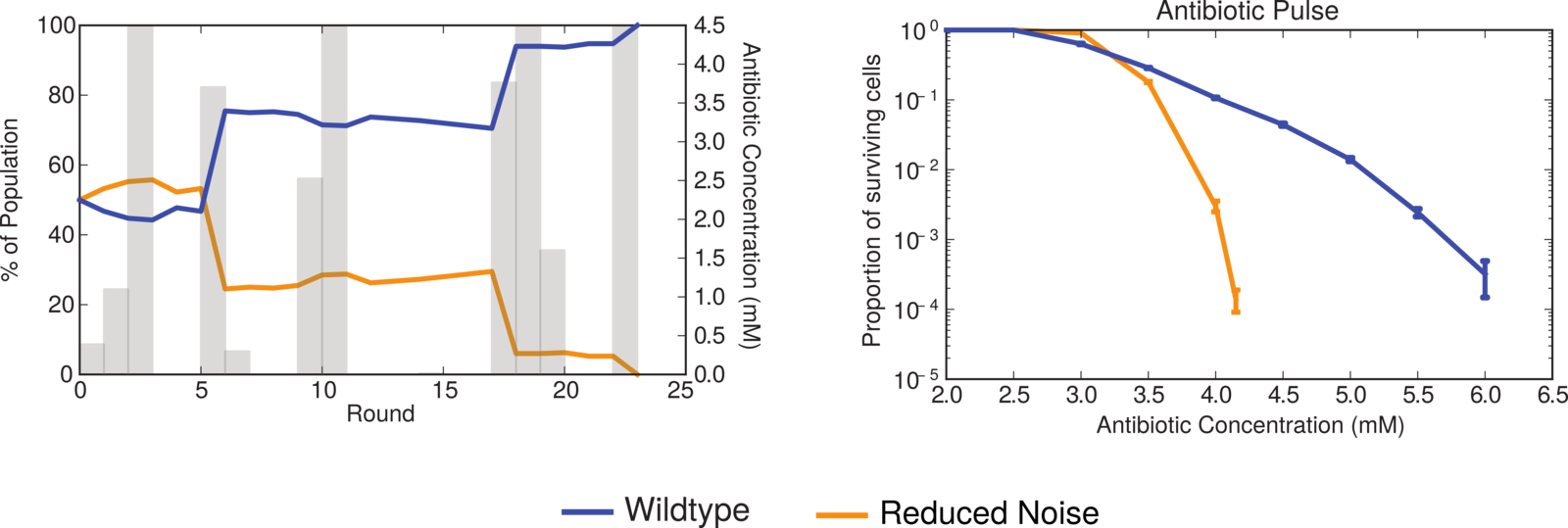
Garcia-Bernarndo and Dunlop, PLOS Computational Biology (2013)

VARIABILITY ENHANCES SURVIVAL TO STRESS
SUMMARY SECTION A: VARIABILITY IN GENE EXPRESSION INCREASES RESISTANCE TO STRESS
- Many genes involved in stress response have high variability (noise).
- Variability can be beneficial in the presence of an intermittent stressor because it allows the population to survive higher concentrations of the stressor without a high energy cost.

(B) VARIABILITY IN GENE
EXPRESSION COORDINATES
STRESS RESISTANCE MECHANISMS
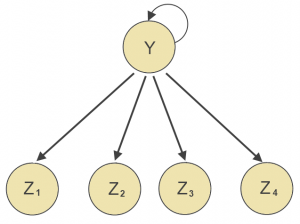
COMPLEMENTARY GENES IN STRESS RESISTANCE
Can variability coordinate the response in a small fraction of the population?
A
D1
D2
D3
D4

LOW-LEVEL VARIABILITY IN THE ACTIVATOR
Garcia-Bernarndo and Dunlop, Biophysical Journal (2015)
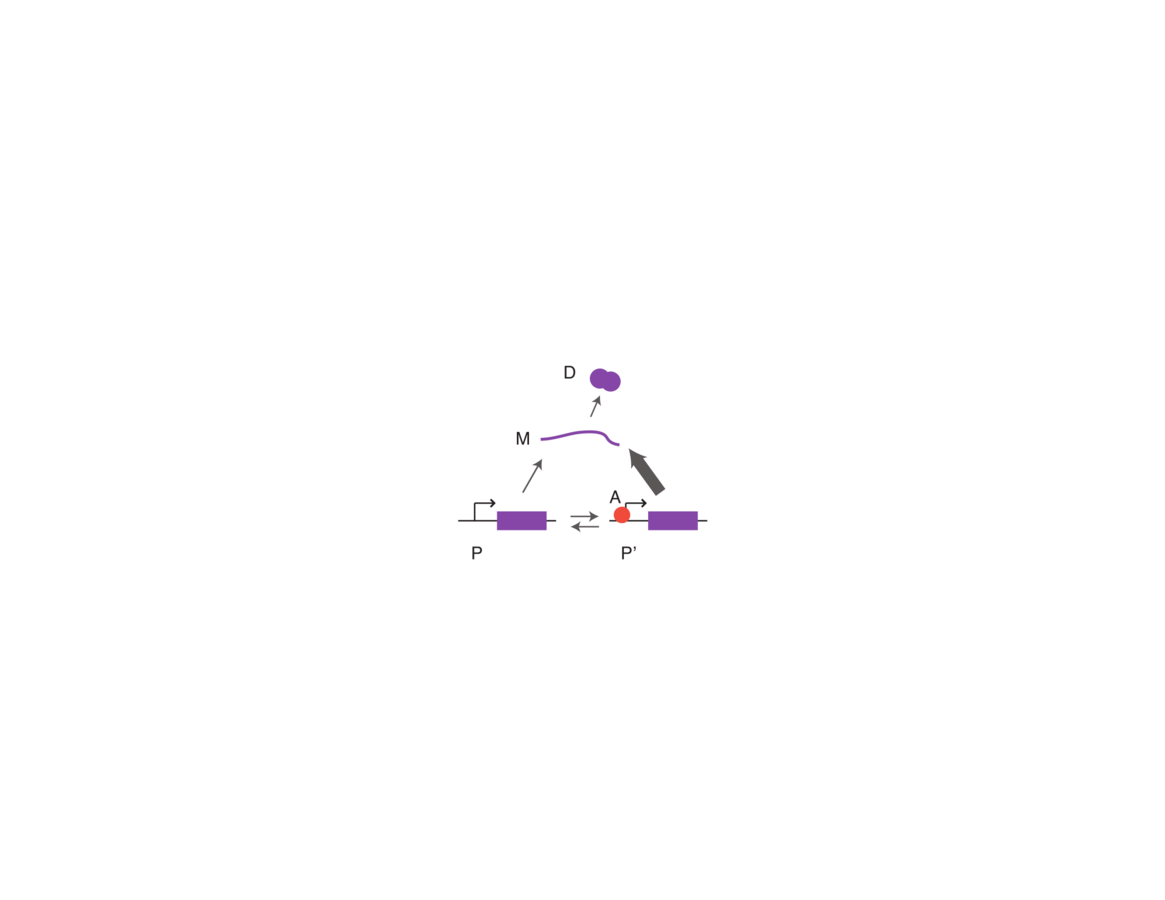
Low levels of the regulator activate downstream genes rarely.
We compare constant, pulsing and noisy activators.
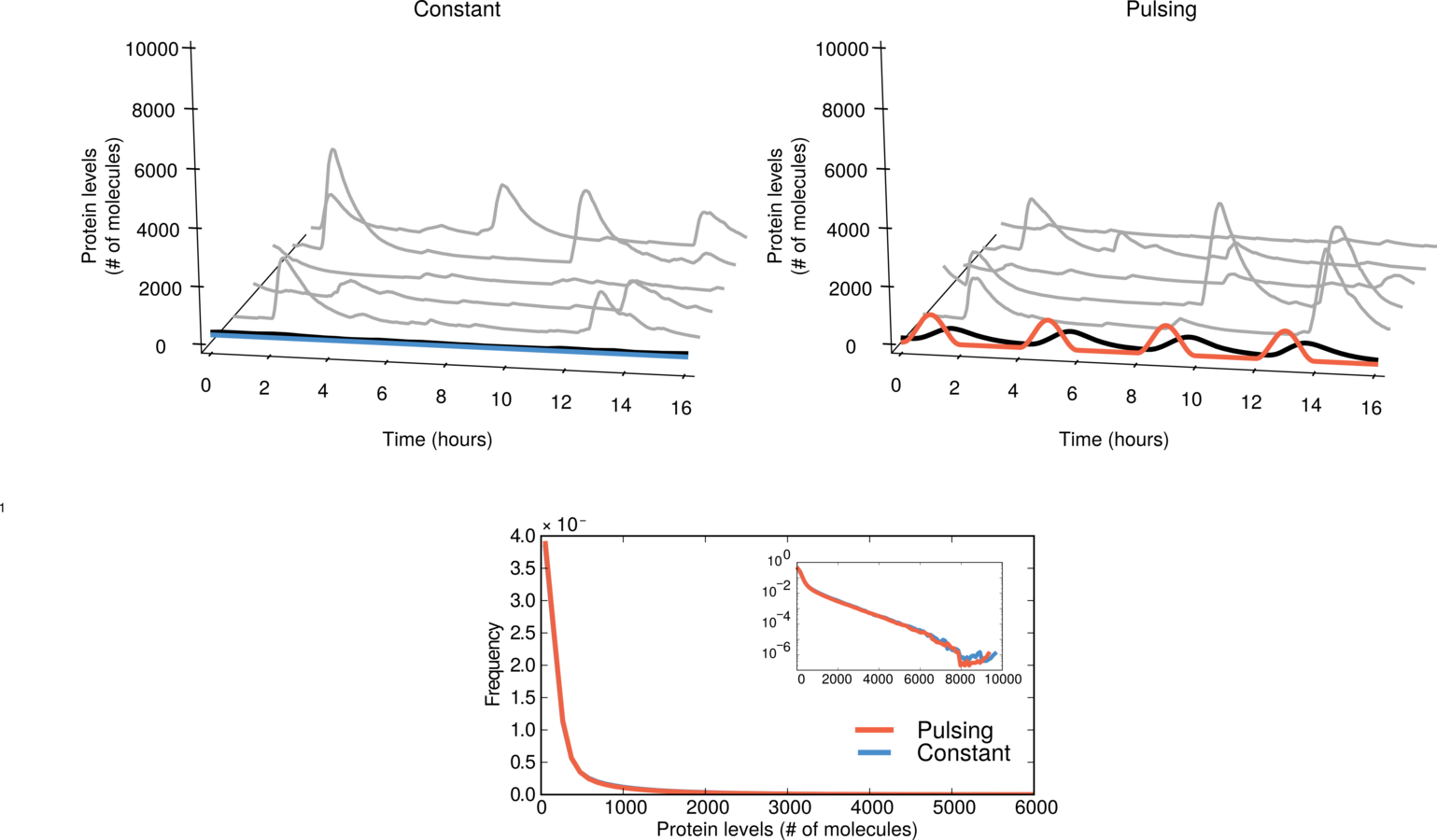
LOW-LEVEL VARIABILITY IN THE ACTIVATOR
Both constant and pulsing dynamics activate downstream genes infrequently.
Pulsing dynamics increases the probability of simultaneous gene expression.
Garcia-Bernarndo and Dunlop, Biophysical Journal (2015)

PULSING DYNAMICS AND NOISE COORDINATE GENE EXPRESSION
Garcia-Bernarndo and Dunlop, Biophysical Journal (2015)

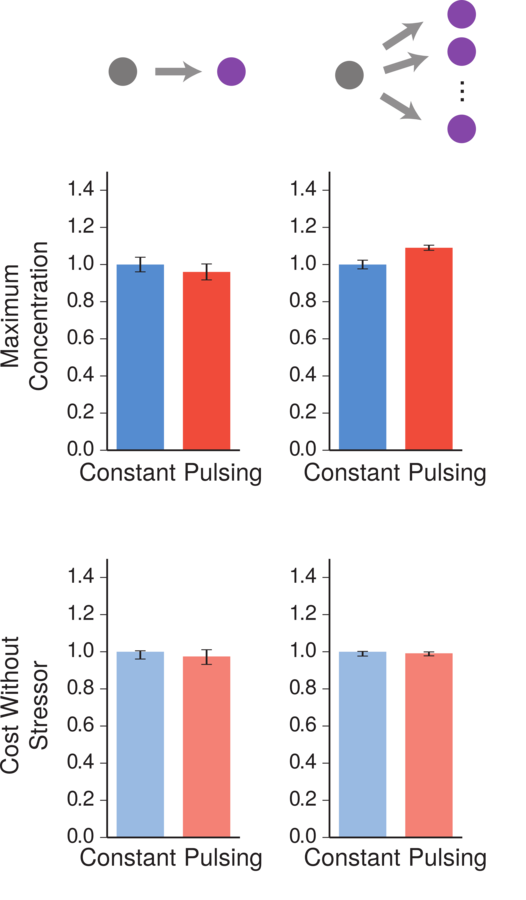
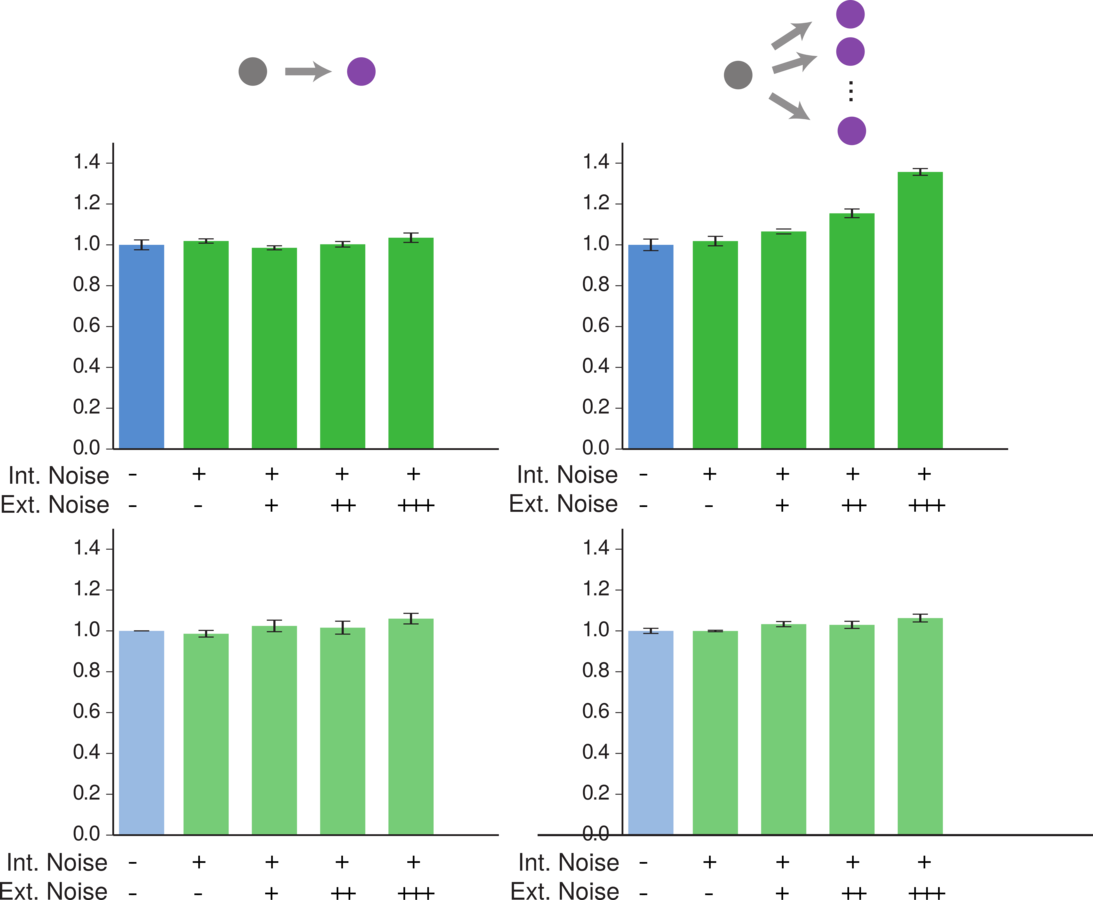
COORDINATION OF THE RESPONSE INCREASES SURVIVAL WITHOUT EXTRA COST
Garcia-Bernarndo and Dunlop, Biophysical Journal (2015)


Garcia-Bernarndo and Dunlop, Biophysical Journal (2015)
COORDINATION OF THE RESPONSE INCREASES SURVIVAL WITHOUT EXTRA COST


Garcia-Bernarndo and Dunlop, Biophysical Journal (2015)
COORDINATION OF THE RESPONSE INCREASES SURVIVAL WITHOUT EXTRA COST


Garcia-Bernarndo and Dunlop, Biophysical Journal (2015)
COORDINATION OF THE RESPONSE INCREASES SURVIVAL WITHOUT EXTRA COST


Garcia-Bernarndo and Dunlop, Biophysical Journal (2015)
COORDINATION OF THE RESPONSE INCREASES SURVIVAL WITHOUT EXTRA COST


Garcia-Bernarndo and Dunlop, Biophysical Journal (2015)
COORDINATION OF THE RESPONSE INCREASES SURVIVAL WITHOUT EXTRA COST


Garcia-Bernarndo and Dunlop, Biophysical Journal (2015)
COORDINATION OF THE RESPONSE INCREASES SURVIVAL WITHOUT EXTRA COST


Garcia-Bernarndo and Dunlop, Biophysical Journal (2015)
COORDINATION OF THE RESPONSE INCREASES SURVIVAL WITHOUT EXTRA COST


Garcia-Bernarndo and Dunlop, Biophysical Journal (2015)
COORDINATION OF THE RESPONSE INCREASES SURVIVAL WITHOUT EXTRA COST
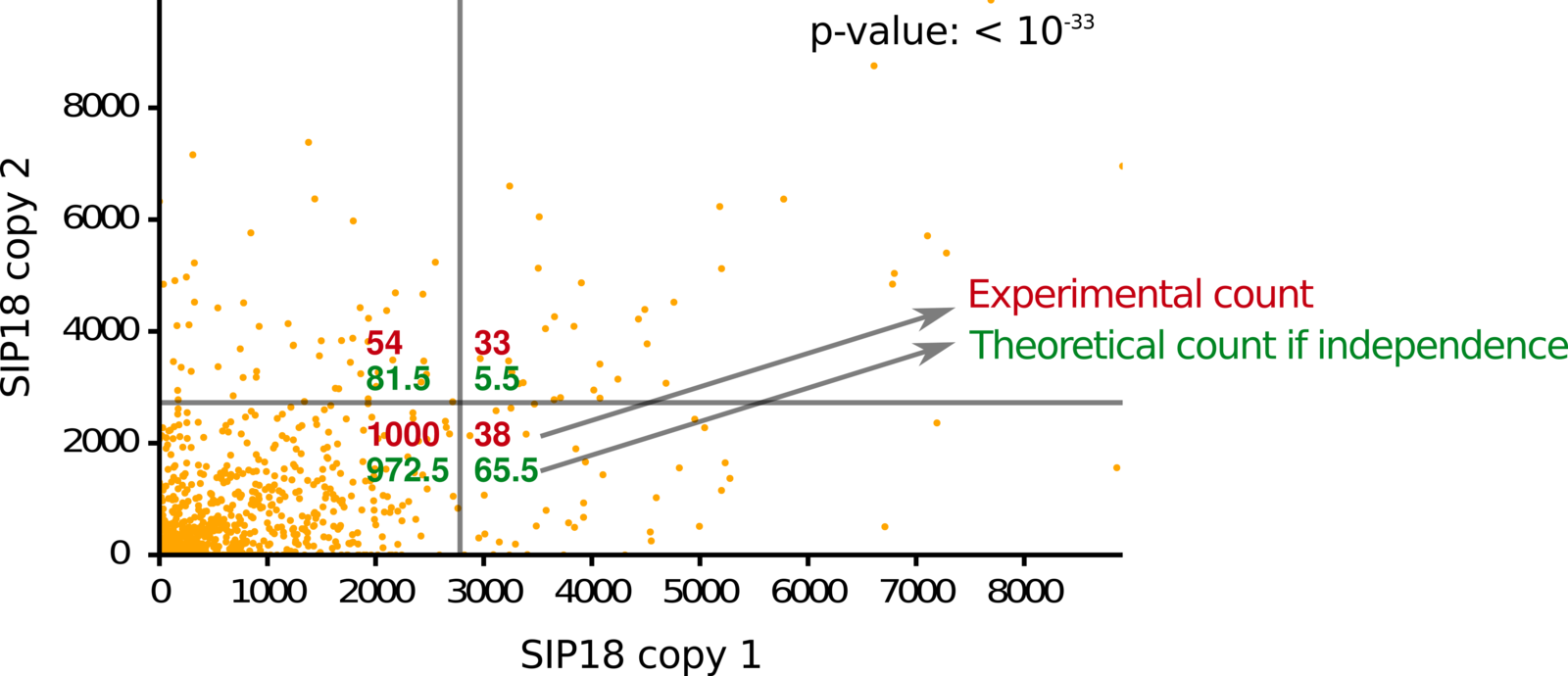
Data from Hansen et al., Molecular Systems Biology (2013)
t
SUMMARY SECTION B: VARIABILITY IN GENE EXPRESSION COORDINATES STRESS RESPONSE
- Stress resistance is composed of many genes that cannot be expressed continuously or in the entire population.
- Noise and low-level fluctuations in an upstream regulator are able to coordinate the response without adding cost to the population.

(C) NOISE AND BIMODALITY
IN GENE EXPRESSION

UNIMODAL AND BIMODAL DISTRIBUTIONS
Noise
Feedback
Noise in gene expression produce unimodal (gamma) distributions.
Bimodal distributions can also be obtained, but require more complex regulation, which impose evolutionary and maintenance costs.
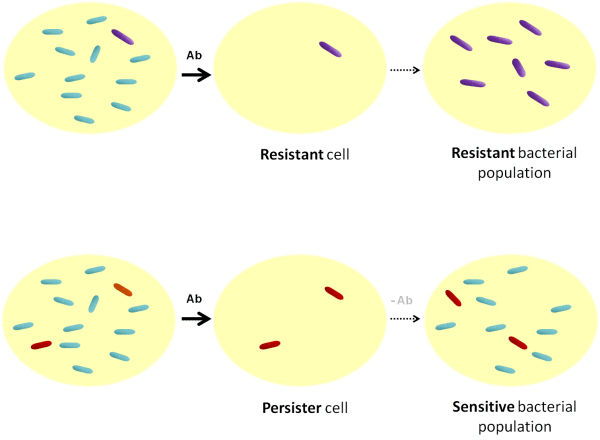
MANY PATHOGENIC BACTERIA USE BIMODAL DISTRIBUTIONS TO SURVIVE STRESSORS
However 99% of Escherichia coli genes are unimodal (Taniguchi et al., Science (2012))
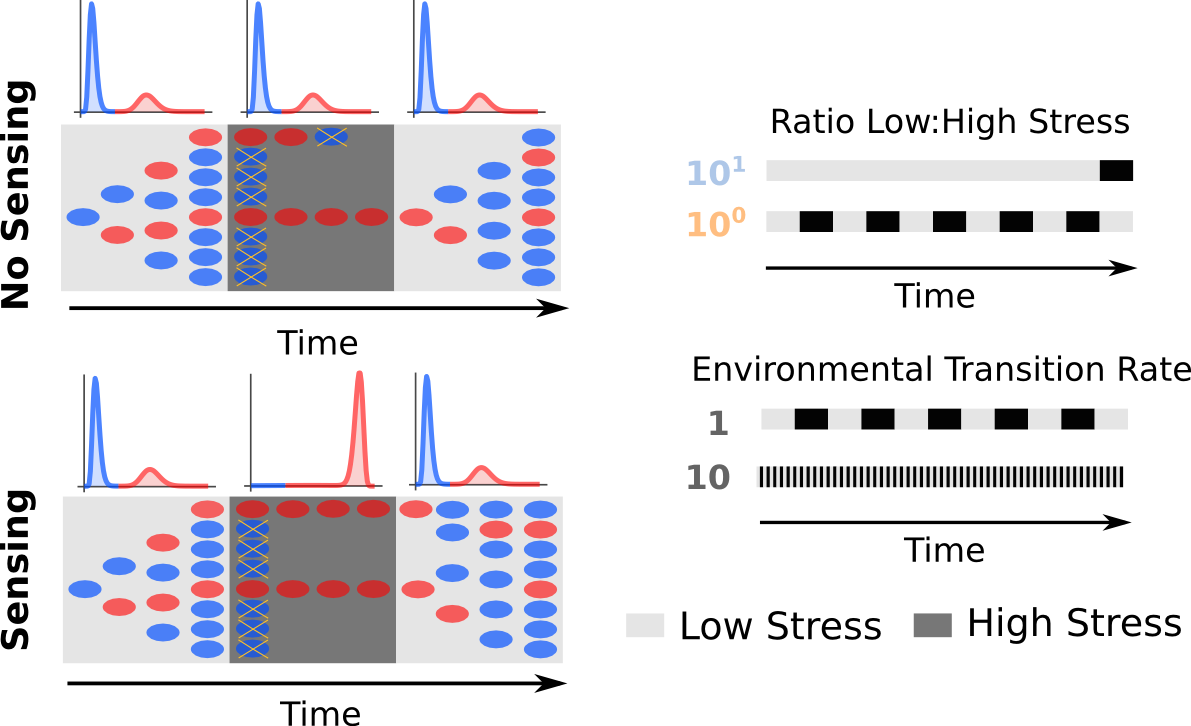
Colors indicate different levels of resistance.
The switch between blue and red states is stochastic.
Cells thrive in low stress conditions.
Non-resistant (blue) cells die during the stress shock.
Resistant (red) cells survive but can switch back.

Garcia-Bernardo and Dunlop, In preparation

Garcia-Bernardo and Dunlop, In preparation
The stress appears abruptly; cells cannot rely solely on sensing.
Non-resistant (blue) cells die during the stress shock.
Resistant (red) cells do not switch back to blue.

Garcia-Bernardo and Dunlop, In preparation

Garcia-Bernardo and Dunlop, In preparation
COST-BENEFIT FUNCTION AND ALGORITHM

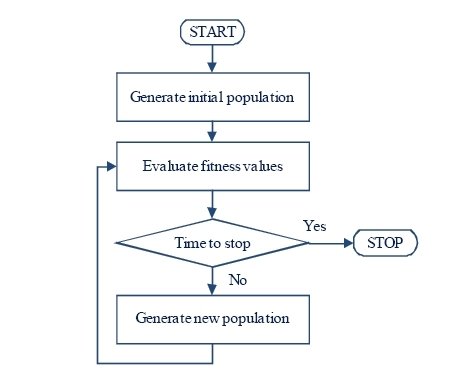
Recap
We have seen that a unimodal distribution -- produced by noise in gene expression -- can increase stress resistance without cost.
What are we evolving? The distribution of protein levels with the highest growth rate in a fluctuating environment.
How? Restricting the evolved distribution to be one gamma or the weighted sum of two gamma distributions.
Why? To assess the benefit of bimodality in a fluctuating environment.
Garcia-Bernardo and Dunlop, In preparation

MULTISTABILITY IS BENEFICIAL WHEN THE ENVIRONMENT IS WELL-DEFINED

Garcia-Bernardo and Dunlop, In preparation
MULTISTABILITY IS BENEFICIAL WHEN THE ENVIRONMENT IS WELL-DEFINED

Garcia-Bernardo and Dunlop, In preparation
MULTISTABILITY IS BENEFICIAL WHEN THE ENVIRONMENT IS WELL-DEFINED

Garcia-Bernardo and Dunlop, In preparation
MULTISTABILITY IS BENEFICIAL WHEN THE ENVIRONMENT IS WELL-DEFINED

Garcia-Bernardo and Dunlop, In preparation
MULTISTABILITY IS BENEFICIAL WHEN THE ENVIRONMENT IS WELL-DEFINED

Garcia-Bernardo and Dunlop, In preparation
MULTISTABILITY IS BENEFICIAL WHEN THE ENVIRONMENT IS WELL-DEFINED
Recap
Why? To assess the benefit of multimodality in a fluctuating environment.
For both sensing and non-sensing populations, multimodality is beneficial.
Furthermore, sensing increases the parameter region that favors multimodality.
We now ask if this benefit of multimodality is related to the well-defined environment (low and high stress conditions).


Garcia-Bernardo and Dunlop, In preparation
MULTISTABILITY IS NOT BENEFICIAL FOR NOISY ENVIRONMENTS


Garcia-Bernardo and Dunlop, In preparation
MULTISTABILITY IS NOT BENEFICIAL FOR NOISY ENVIRONMENTS


Garcia-Bernardo and Dunlop, In preparation
MULTISTABILITY IS NOT BENEFICIAL FOR NOISY ENVIRONMENTS


Garcia-Bernardo and Dunlop, In preparation
MULTISTABILITY IS NOT BENEFICIAL FOR ENVIRONMENTS WITH MANY STATES


Garcia-Bernardo and Dunlop, In preparation
MULTISTABILITY IS NOT BENEFICIAL FOR ENVIRONMENTS WITH MANY STATES


Garcia-Bernardo and Dunlop, In preparation
MULTISTABILITY IS NOT BENEFICIAL FOR ENVIRONMENTS WITH MANY STATES
SUMMARY SECTION C: UNIMODAL VERSUS BIMODAL
- Bimodal distributions are favored when the environment is well-defined.
- Sensing increases the number of conditions where bimodality is beneficial but reduces the maximum benefit.
- When the environment is noisy or composed of several environments, a unimodal (noise in gene expression) is not worse than a bimodal distribution.

- Variability in gene expression increases fitness when resistance is determined by one gene.
- Noise has little impact on cost.
- Variability in an upstream regulator is able to coordinate gene expression in a small fraction of the population.
- Noise doesn't have an impact on cost when it is used to coordinate response.
- Bimodality is beneficial when the environment is well-defined but not when it is noisy.
Why do we care? It has applications in medicine, industry and ecology.
We can design better microbes.
The same cost-benefit analysis can be used to design optimal drug profiles.
Similar analysis can be useful in population ecology.
Conclusions
- Variability in gene expression increases fitness when resistance is determined by one gene.
- Noise has little impact on cost.
- Variability in an upstream regulator is able to coordinate gene expression in a small fraction of the population.
- Noise doesn't have an impact on cost when it is used to coordinate response.
- Bimodality is beneficial when the environment is well-defined but not when it is noisy.
Why do we care? It has applications in medicine, industry and ecology.
We can design better microbes.
The same cost-benefit analysis can be used to design optimal drug profiles.
Similar analysis can be useful in population ecology.
Conclusions
- Variability in gene expression increases fitness when resistance is determined by one gene.
- Noise has little impact on cost.
- Variability in an upstream regulator is able to coordinate gene expression in a small fraction of the population.
- Noise doesn't have an impact on cost when it is used to coordinate response.
- Bimodality is beneficial when the environment is well-defined but not when it is noisy.
Why do we care? It has applications in medicine, industry and ecology.
We can design better microbes.
The same cost-benefit analysis can be used to design optimal drug profiles.
Similar analysis can be useful in population ecology.
Conclusions
- Variability in gene expression increases fitness when resistance is determined by one gene.
- Noise has little impact on cost.
- Variability in an upstream regulator is able to coordinate gene expression in a small fraction of the population.
- Noise doesn't have an impact on cost when it is used to coordinate response.
- Bimodality is beneficial when the environment is well-defined but not when it is noisy.
Why do we care? It has applications in medicine, industry and ecology.
We can design better microbes.
The same cost-benefit analysis can be used to design optimal drug profiles.
Similar analysis can be useful in population ecology.
Conclusions
- Variability in gene expression increases fitness when resistance is determined by one gene.
- Noise has little impact on cost.
- Variability in an upstream regulator is able to coordinate gene expression in a small fraction of the population.
- Noise doesn't have an impact on cost when it is used to coordinate response.
- Bimodality is beneficial when the environment is well-defined but not when it is noisy.
Why do we care? It has applications in medicine, industry and ecology.
We can design better microbes.
The same cost-benefit analysis can be used to design optimal drug profiles.
Similar analysis can be useful in population ecology.
Conclusions
- Variability in gene expression increases fitness when resistance is determined by one gene.
- Noise has little impact on cost.
- Variability in an upstream regulator is able to coordinate gene expression in a small fraction of the population.
- Noise doesn't have an impact on cost when it is used to coordinate response.
- Bimodality is beneficial when the environment is well-defined but not when it is noisy.
Why do we care? It has applications in medicine, industry and ecology.
We can design better microbes.
The same cost-benefit analysis can be used to design optimal drug profiles.
Similar analysis can be useful in population ecology.
Conclusions
- Variability in gene expression increases fitness when resistance is determined by one gene.
- Noise has little impact on cost.
- Variability in an upstream regulator is able to coordinate gene expression in a small fraction of the population.
- Noise doesn't have an impact on cost when it is used to coordinate response.
- Bimodality is beneficial when the environment is well-defined but not when it is noisy.
Why do we care? It has applications in medicine, industry and ecology.
We can design better microbes.
The same cost-benefit analysis can be used to design optimal drug profiles.
Similar analysis can be useful in population ecology.